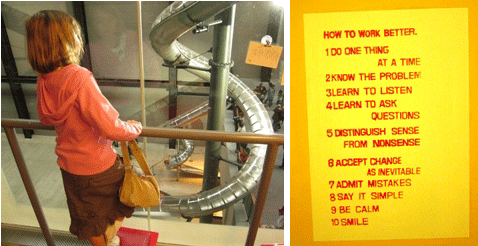We’re enjoying a few weeks break on Dartmoor, and I’d planned to give the blog a rest too but I was struck by some parallels between social media and a local activity that my children have enjoyed here in the moors – “letterboxing”. Geoff joined us for the day, and encouraged me to blog some of our observations Dartmoor covers nearly 400 square miles, and has a large number of tors (high spots with heavily jointed granite outcrops). Over the years, enthusiastic “letterboxers” have hidden a number of weatherproof boxes around Dartmoor, in which a notebook and an ink stamp are stored. (It’s a kind of low-tech geocaching) The idea is that you seek out these boxes - there are estimated to be 1000+ on Dartmoor (some better than others – much like the Blogosphere!). On finding one, you write a note in the book, and leave your own personalised “stamp” in their notebook. You then stamp your own notebook with their stamp, and hide the box for the next person to find. Kind of like writing on someone’s wall in FaceBook, and exchanging invitations in LinkedIn?
If you are the owner of a letterbox, you return periodically to see who has discovered your box, read the messages, and (I guess!) bask in an inner glow that can only come from knowing that a number of complete strangers have written encouraging messages to you. Sounds a bit like MySpace?
The official “rules” for letterboxing preclude just anyone leaving their own box – no, you have to prove that you are a responsible and dedicated letterboxer by first collecting 100 stamps in your notebook and having these validated. Then, you can hide your box, and have clues to its location officially added to the official list of official letterboxes. In practice of course, people are far too impetuous to collect all 100 before hiding their own boxes, so a two-tier system of “official” and “unofficial” boxes has emerged, with official boxes clearly marked with their “authority”. Letterbox Technorati and Social bookmarking?
It’s interesting to see the balance between regulation and emergence, rulemaking and rulebreaking. I wonder what the future will hold for Dartmoor’s letterboxers – and whether we’ll manage to find our 100 and leave our own box (see what a compliant soul I am?) before the holiday is over…




